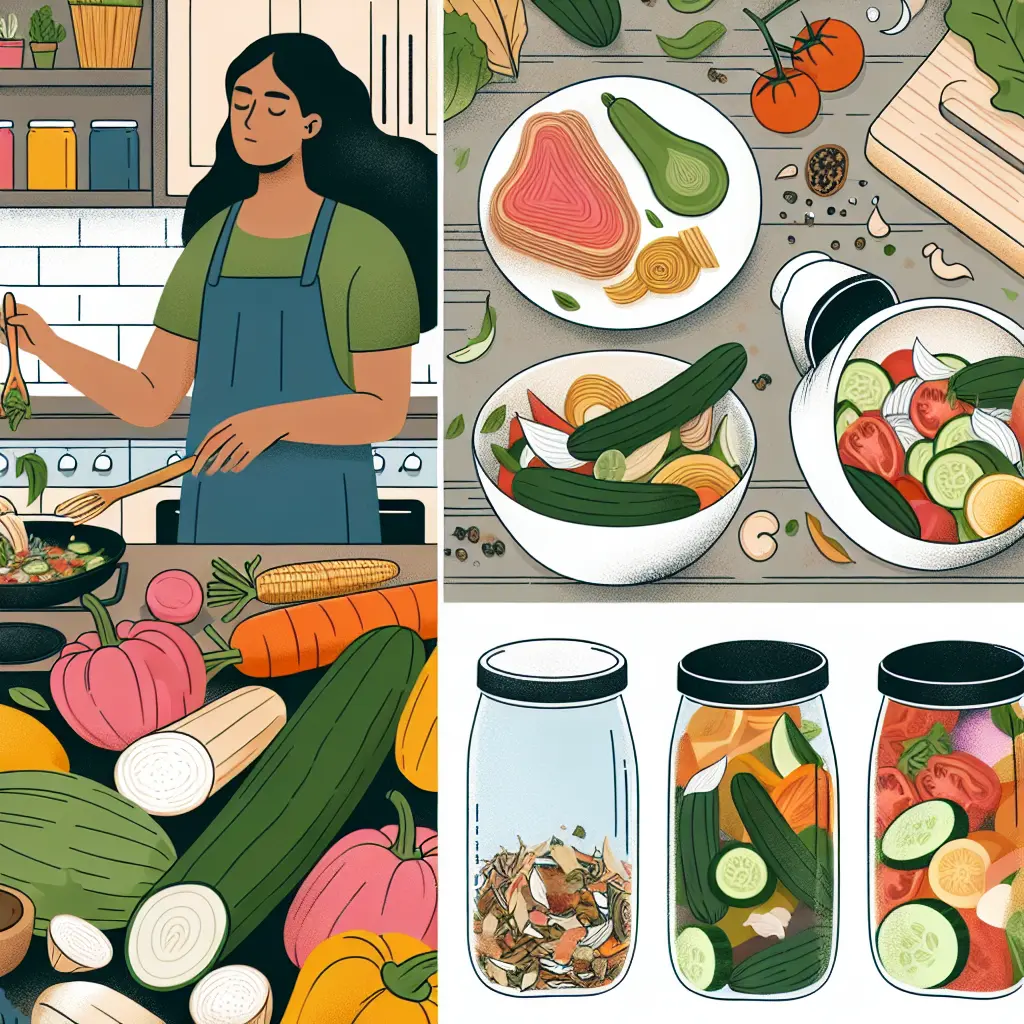
In a world grappling with the environmental impacts of waste, zero waste cooking emerges as a beacon of hope and sustainability. As individuals seek ways to lead more eco-friendly lives, understanding how to minimize kitchen waste becomes paramount. This blog delves into practical zero waste cooking tips, sustainable meal planning, and more, ensuring you're equipped to reduce food waste effectively.
Embracing Zero Waste Cooking
Zero waste cooking is not just a trend but a lifestyle shift aimed at food waste prevention. At its core, it involves strategies to utilize every part of purchased food products, thus minimizing waste. A zero waste kitchen operates on the principles of reusing, repurposing, and recycling wherever possible. For those new to this approach, starting with simple, waste-free recipes can be an excellent kickoff.
Sustainable Meal Planning
Planning is crucial in sustainable cooking. By forecasting meals, you can buy exactly what you need, reducing the chance of food spoilage. Sustainable meal planning involves selecting recipes that make use of similar ingredients, thus ensuring that you use up everything you buy. For example, if a recipe requires half an onion, plan another meal that uses the other half within the same week.
Zero Waste Grocery Shopping
Shopping practices significantly influence the amount of waste produced. Zero waste grocery shopping means buying in bulk where possible and using reusable containers and bags. It also involves selecting products with minimal to no packaging or opting for biodegradable or recyclable packaging options. By making these choices, shoppers play a direct role in reducing packaging waste that often ends up in landfills.
Repurposing Food Scraps
One of the pillars of zero waste cooking is repurposing food scraps. Vegetable peels, for instance, can be transformed into delicious stocks or added to compost bins. The act of repurposing not only contributes to food conservation techniques but also enhances creativity in the kitchen.
Eco-Friendly Cooking Practices
Eco-friendly cooking extends beyond just saving leftovers or using every part of the vegetable. It also involves using energy-efficient cooking methods and appliances. Techniques such as batch cooking or using a pressure cooker can save both energy and time.
Zero Waste Food Storage
Proper food storage is essential in minimizing kitchen waste. Zero waste food storage solutions include using glass or stainless steel containers, which are both durable and non-toxic. These materials ensure that food remains fresh longer without the health risks associated with plastics.
Composting Tips
Composting is a fundamental aspect of a zero waste kitchen. By composting organic waste, nutrients are returned to the soil instead of being trapped in landfills where they release methane, a potent greenhouse gas. Setting up a compost bin can be simple, and it provides a rich source of nutrients for garden soil.
Innovative Education and Sustainability
Educational initiatives can also play a significant role in promoting sustainable practices. For instance, students at Ajman University showcased ten interior design projects with a focus on energy efficiency and water conservation (Dezeen School Shows). Similarly, colleges are becoming living labs for combating climate change by integrating sustainability into their curriculums and operations.
Global Movements Towards Sustainability
Cities and countries around the world are also turning towards sustainability. Singapore, despite its limited space, has become a model of efficient space usage while continuously pushing the boundaries on sustainability (TIME). These examples provide not only inspiration but also practical frameworks that can be adapted elsewhere.
Sustainable Eating Habits
The transition to sustainable eating habits involves more than just individual actions; it's about community and global efforts. Sharing knowledge about eco-friendly practices and supporting local sustainable businesses are all part of fostering a broader cultural shift towards sustainability.
Conclusion
Adopting zero waste cooking and sustainable eating habits isn't just beneficial for the environment—it can also be healthier, more economical, and incredibly satisfying. By planning meals sustainably, shopping wisely, repurposing scraps, and implementing eco-friendly storage solutions, we can significantly curb food wastage. Let’s continue to innovate, educate, and inspire as we cook our way towards a more sustainable world.
Remember, every small step counts when it comes to sustainability. It's about making consistent choices that align with eco-friendly values. Let’s turn our kitchens into havens of sustainability one meal at a time!
Happy cooking and living sustainably!
Jenna Walsh